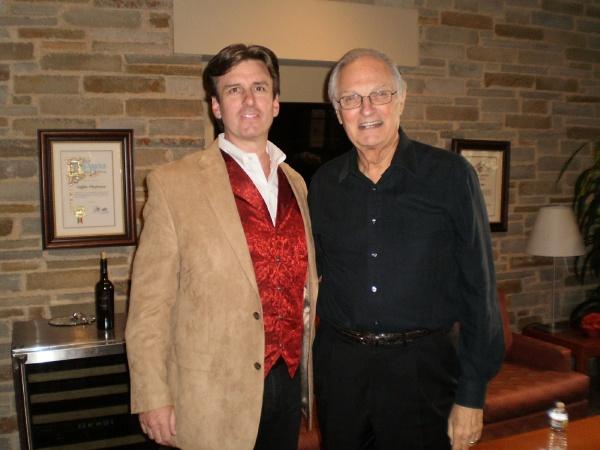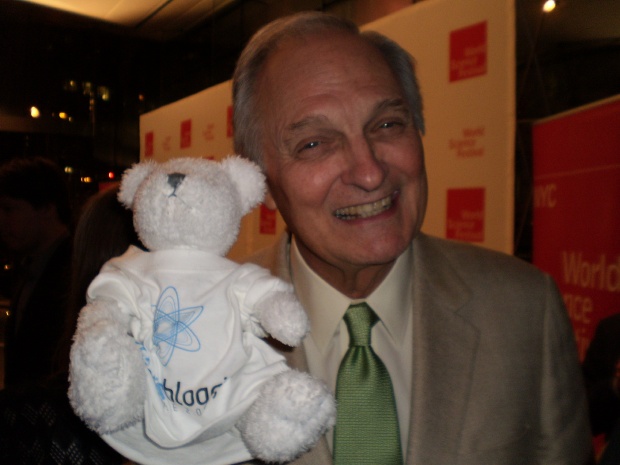If you're reading this article, you may have known who I meant with the first one, but how many of you instinctively thought of Pierre Curie, co-discoverer of Polonium and Radium, when I used the term 'professor'? You all knew the name Marie Curie but to the bulk of the world, one of the most iconic scientists of the 20th century is known instead as "Madame Curie".
Being referred to as "Professor and Madame Curie" by Dr. H.R. Tornebladh, president of the Royal Swedish Academy of Sciences as they were presented the Nobel prize in 1903 was perhaps a slight to 'the other' professor Curie at the time but, if so, she never said it publicly. Neither her autobiography nor the later biography by her daughter Eve mentions much of sexism or gender bias and an argument could be made that the science community did not have much of it, at least compared to the broad society of the day; she was the first female professor at La Sorbonne (University of Paris) she was a Legion of Honor recipient and she received two Nobel prizes in two different fields dominated by men. Curie has name recognition even now among the public on a par with Einstein(1) and well she should; she did more for the then new Nobel prize than it did for her(2). And she left Poland for France because there were no academic opportunities for women at all in her home, so while the La Belle Epoque was not golden for everyone equally, it was certainly better for women in France than many other countries.
Her science story is legendary, almost mythical, but the personal story is less well known to people. Yet it's a story that's been waiting to be told and actor, director, screenwriter, playwright and science outreach enthusiast Alan Alda tackles it starting next week.
I sat down with Alda in the Founders Room of the Geffen Playhouse in Los Angeles while they rehearsed "Radiance: The Passion of Marie Curie" (want to see it? Tickets are on sale now) to discuss his motivation behind updating the Marie Curie legend, why this was a story he had to tell and how he navigated the difficult waters of taking someone iconic and showing they were a real person without enraging the people for whom she has become mythological.

Yes, an actual picture of me with someone instead of Bloggy. Like 80 percent of American women, my mother feels like she and Alan Alda are best friends so she insisted I take a picture at the interview, so this is my fanboy moment. We got a pic of him with Bloggy a while ago, which you can see below.(4) He did not remember taking the picture with Bloggy, which is something of a miracle. Photo: Allison Rawlings
'Madame' Curie was a term embraced by journalists when radiation was being considered a potential cure for cancer and she gave speeches and presentations worldwide. It seems to have been a compliment; there are lots of professors but only one scientist with 'Madame' akin to a proper name, so it makes her stand out even today.
Embracing 'Madame' could also be considered a sense of empowerment on her part; the more famous she became as a scientist, the more ridiculous the slight of Tornebladh (who has ever heard of him today?) looked and so perhaps she embraced it. If so, it says a great deal about her character and character is the onus of the story Alda wants to tell.
"Radiance" basically covers the periods between her first Nobel prize and the second, which is a time of terrific science advancements but also a time of personal struggle for her. Alda set out to humanize Curie for a modern audience that understands she made science achievements but not the hurdles she faced to accomplish those.
"Because her personal story is so vivid and it's interwoven with her scientific story, she becomes a chance for people who are not that tuned into science to see a great scientist as a fellow human being," he said. "She's not a disembodied intellect, she is a person with passions and desires and flaws just like us. That is a step, I think, toward actually listening to what scientists say. Because they're not speaking a foreign language, they're people like us who are spending their time acting on their curiosity.
"We have some of that same curiosity but we don't act on it. (Scientists) have bottomless curiosity and energy but that doesn't make them foreign to us. It's a distillation of us. It's us, in more potent form."
Humanizing Curie as a way of humanizing scientists, especially in the modern politically charged climate where the fringes of the left and the right adopt anti-science positions that deviate from a cultural agenda, is a recurring them to Alda. "One of the things I want to do is make science seem more human to people who don't always see it that way."
Any scientist who thinks their life is tough today, because they have to fill out a grant application or have an anti-science hippie alleging they are shills for a science conspiracy, can take a renewed look at Curie and be amazed at what she endured to crack the secret codes of nature.
"She faced so many obstacles," Alda said. "The obstacle of the science itself. She was exploring an area that really seemed anomalous. it didn't seem to conform to how nature worked, how everybody thought it worked. They thought atoms were indivisible. They were working in the dark. They would have to devote themselves to years of boiling down this slag, not really knowing if they were going to get something out of it.
"There was the obstacle of acknowledging her work, as a woman. And there were the social mores of the time."
Alda is somewhat famous as a classic feminist, so I asked him if empowering women was part of the goal in his story. Not consciously, he replied. "The play is not a feminist tract, you just can't tell her story without acknowledging that particular obstacle she had. There were even fellow scientists who would assume that Pierre did all of the work. Or she was just giving him encouragement."
After she lost (by two votes) admission into the French Academy of Sciences, Emile Amagat famously said, "Women cannot be part of the Institute of France" - and he was right. A woman would not be admitted until 1962, but there were other factors she had to battle besides sexism; she was 'not really French' in xenophobic France, so that she was only denied by two votes is likely a strong testament to the respect her science achievements had earned her. Her being refused admission earned international indignation for the French science community and she in turn refused to let them publish anything of hers for over a decade - the world was clearly on her side, even if the situation was no better for women in places like America.
And then there was her personal life. Her relationship with married fellow scientist Paul Langevin was a scandal at the time, so bombastic among the public the Nobel committee suggested she stay home rather than travel to Stockholm to accept her second award. She declined to hide, saying her personal life was not why she won, and that is a fulcrum for much of the story Alda wants to tell. "The play hangs around the second Nobel because she's never getting credit for what she does, fully, and she has to actually take things into her own hands. When she goes to Stockholm, her speech has an unusual number of references to what she has accomplished - because nobody else was doing it for her. That, in my mind, is growth on her part."
Strong people rarely come off as sympathetic and perhaps strong women have a more difficult time now as they likely did then. I asked if she was a sympathetic figure, given her reputation for being cold and her words the last time she saw Pierre alive and the later scandal around her relationship with Langevin. In her journal, she regrets that the last words she had been able to speak to her husband were not 'love and kindness.'
"It's a very moving moment. It's in there," Alda replied. "Not just the last words, but she talks to him in her diaries, in letters she wrote to him years after he died and she pleads with him to understand, because she feels terrible that the last words she spoke to him were in anger."
That knowledge of her inner heartbreak came later when her journals were known. To the public at the time she continued to become ever more famous as "Madame Curie". The recognition of her strength, internal and apparently external, given that you can't even touch her cookbook or any of her journals today without a HazMat suit, have only grown, making it a little difficult to tell a story about the person instead of the legend.
"When I tell people I wrote a player about Marie Curie they pause for a second and say, 'Oh, you mean Madame Curie'. When I put Marie Curie's name in the title, I thought everyone would know who I was talking about," he laughed, "They don't. It takes them a while."
Unlike some scientists, her strength and her legend never really faded as she aged, even though she lived for quite a long time. "It's amazing she lived to the age of 66. Two things were amazing that she lived so long; one is plunging her hands into radioactive materials for so many years and the other was that she either didn't understand how dangerous it was, or she refused to acknowledge it so she could keep working."
How many scientists have that same addiction? Probably quite a few. And laypeople seem to understand it, he said.
"People often come away from this with an emotional response to the dedication of Marie Curie," Alda said. "It's an emotional experience for them and they have a better understanding of the science. Some laypeople learn about her for the first time.
"Scientists come away having been moved by the fact that how they feel about science is represented on the stage. It's a positive experience, and I want people to have a good experience. Her life - she is a hero of mine. She's gotten me through the whole process of writing this and whenever I have come up against an obstacle in the writing, and an obstacle now in my life, very often, because I am so intimately immersed in her story, she comes to mind, and I think 'this is nothing compared to what she had to deal with' - she never let anything stop her.
"I find that gives me strength."
In LA or traveling there next month and want to see it for yourself? You can get tickets here and they are even putting on a kids version of the story.

*** Addendum ***
Some parts of the interview are more about the logistics and actual process of bringing something like "Radiance" to life so I will edit that and put it up as a podcast. Until then, if you want to learn more, you can see an interview provided by the Geffen Playhouse below (3).
NOTES:
(1) "And Hawking has that kind of name recognition," said Alda, "but that is because of 'The Simpsons'."
(2) The Peace and Literature prizes were known to the public but the other prizes were esoteric (much like the Literature prize is now) - Marie Curie winning the award in physics attracted coverage from the mainstream press for the first time and made the Curies into celebrities.
(3)
(4) Alan Alda with Bloggy at the World Science Festival 2009.






Comments